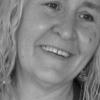Search the Community
Showing results for tags 'home care certification'.
-
Activity Professionals – Where are we going? – NCCAP Activity Professionals – Where are we going? – NCCAP . Recently, a car company used a famous actor to sell cars. The commercials were interesting, to say the least and became the butt of jokes and parodies. However, the actor said something in one of the commercials that was rather profound. He said “Sometimes you got to go back to move forward. Need to go back to see where you came from; where you’ve been, how you got here; to see where you’re going.†The activity professional’s look back period is a short one. The Federal regulations defined our profession as a requirement in 1974 although the healing power of recreation and leisure is documented well before that. In our early years, we were known as the “Three B’s- Bingo, Bible Study and Birthday Partiesâ€. The success of our programs was measured by how many people we could gather up for the program, not so much whether individual needs were being met. The activity class which trained us varied from state to state and was at most – 36 hours long. Residents with dementia were considered “senile†and often spent much of their day in restraints (to keep them safe) and medicated (to keep them calm). Looking back, it was not a pretty sight. Today, the activity professional is just that – a trained professional. Education requirements have increased and national certification through National Certification Council for Activity Professionals is the standard most individuals strive for. NCCAP certification may not be the “easy†road but our job is not easy either. Today, our care facilities are based on person directed care, rather than the medical model from years ago. The activity professional is a leader in developing person directed programs, both individual and group. The activity professional is an advocate for the elder, assisting the resident to make their own choices and to continue living life as best they can for as long as they reside in our care facilities. Becoming nationally certified through the NCCAP provides the activity professional with knowledge as well as a national credential which is respected by state and federal agencies. Today, the trained and certified activity professional has earned their position as a vital, equal member of the care team. Where do we go from here? What will tomorrow bring for the activity profession? We need to be mindful of three major areas of change !. the populations served, the care settings in which we work, and available resources. -We are already aware of the changing population 2. the arrival of the Baby Boomers. The age wave of independent minded, individual loving, health conscious people are already peeking in our door. We have begun to adjust our programs and approaches to focus on the new perspective and very individualized needs of this next generation of residents. -Interestingly enough – this new generation of “elders†(don’t call baby boomers elder) will re-shape how we care for people as they do age. Nursing homes will focus more on sub-acute care and rehab while long term care options will segue into smaller communities. We are already seeing new care facilities adopt the Greenhouse Model which are smaller homes for less than 12-15 people. There will be a growth in the “Niche Care†or “Affinity Retirement†communities. These communities cater to the shared interests of a group. Burbank Artists’ Colony in California caters to creative arts of all kinds; Rainbow Vision in New Mexico caters to the LGBT community; and Lakeview Ranch in Minnesota which is specialized dementia care for those who have farmed their whole lives are just a few examples. There will be a return of multi-generational communities; communities where people of all ages reside together but in a supportive way. The Treehouse Foundation is an example of structured multigenerational living. In the Treehouse Communities, older people live in cottages, next door to families who are caring for foster children. Both groups benefit from the support systems in place as well as opportunities to build meaningful relationships. Lastly, remaining in the home will become easier with the increase in home care services. Visit Activitydirector.org for more info on the Home Care Certification Course 3. Adaptive tools will be readily available to all and using them will become the norm rather than the exception. Independence, individuality and living life to the fullest will be a standard for all and who better to guide them through the process – than the Activity Professional. So, as that famous actor said in the commercial – looking back can be helpful and can guide us in making decisions for our future. The future is bright and quite exciting for the activity profession.


